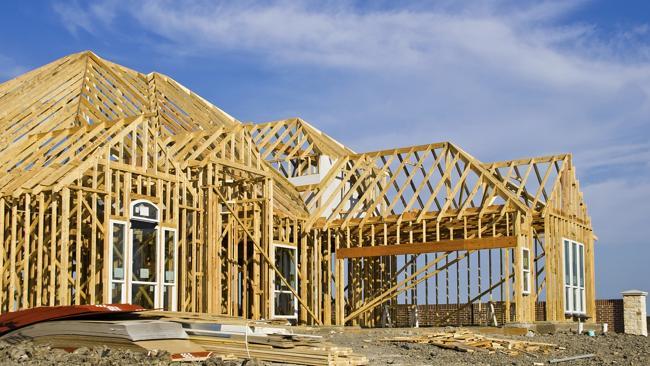Investors would be wise to play the waiting game on property investment
IF you have a burning money issue, or you want to win a fight with your spouse, put your questions to Barefoot Investor.

Barefoot Investor
Don't miss out on the headlines from Barefoot Investor. Followed categories will be added to My News.
My hubby and I would like to buy a property off the plan and then “flip it” (is that the correct term?) when it’s built. We think the profit margins would be good but I’m concerned about capital gains tax. Can you tell me how it’s calculated so we can see if the whole thing is worth our while?
Michelle
A It’s the correct term, but maybe not the correct strategy.
If you “flip” the property within 12 months, you’ll pay capital gains tax at your top marginal rate — which is why it’s important to buy the place in the lower earning spouse’s name.
When you buy a property, you’ll need to stump up about 5 per cent of the purchase price in stamp duty. When you sell it’ll cost you another 3 per cent (or more). Then there’s the costs of borrowing.
The long and short of it is you’ll eat up close to 10 per cent of the purchase price by trying to flip the property, so you need to make sure you’re making at least double that.
AVOID PRICEY ADVICE
Q I’ll soon be retiring, with just on $1 million in my SMSF.
My financial adviser wants to charge me 2 per cent ($20,000) a year to look after the fund. Seems a lot of money to me! Is it too much?
Martin
A I think it’s OK — as long as your adviser agrees to hold your annual review in the Bahamas. And for that money I’d also negotiate that they mow your lawn every Saturday. If you don’t get that, you’re getting ripped off. Martin, you’re getting ripped off.
Your SMSF compliance shouldn’t cost more than $2000 a year (and it can potentially be a lot less), and you should be able to structure your investments via Listed Investment Companies (LICs), and Exchange Traded Funds (ETFs) that charge a tenth of what you’re being slugged.
My advice would be to leave your adviser and find someone you can pay an hourly fee to set up your service, and review it each year. It’s really not that complicated. Remember, the more money you have, the more trips you can take to the Bahamas — without your adviser.
FOR VALUE, GO LOCAL
Q I want to start investing in property. I’ve been to a few seminars and read some books but I need more assistance. What are your thoughts on real estate mentor groups and their fees? I’m looking at one that charges a one-off lifetime fee of $9995 — is it a waste of money or are you paying for peace of mind?
Max
A It sounds like you’re paying for his Ferrari. The best real estate investments aren’t found at seminars — they’re found at the local real estate agents offices of good suburbs. Seriously. The secret to real estate (if there is one), is to purchase good quality, affordable family homes. Most properties that are targeted at investors are rubbish — and you certainly don’t want to be paying ten grand for the privilege of buying one.
FIRST, START SAVING
Q With 20 years of bad investments — not to mention a divorce and a bankruptcy — I’d like to finally start moving forward. My plan is to invest $1000 a month for the next 20 years. I’m 38 and only have $60,000 in super, with no property. I’m still unsure whether to invest in the sharemarket and give myself the chance to retire earlier, or invest in super and sit back and wait. Any advice?
Sam
A You’re coming out of the blocks late, so I’d do three things. First, focus on boosting your income, either by training up or taking a second job. Second, open up an online savings account and name it “deposit”. Eventually you want to own your own home — and the time to start saving for it is right now. Finally, if you commit to putting in $1000 a month as a pre-tax super contribution, you’ll have about $1.1 million when you retire.


